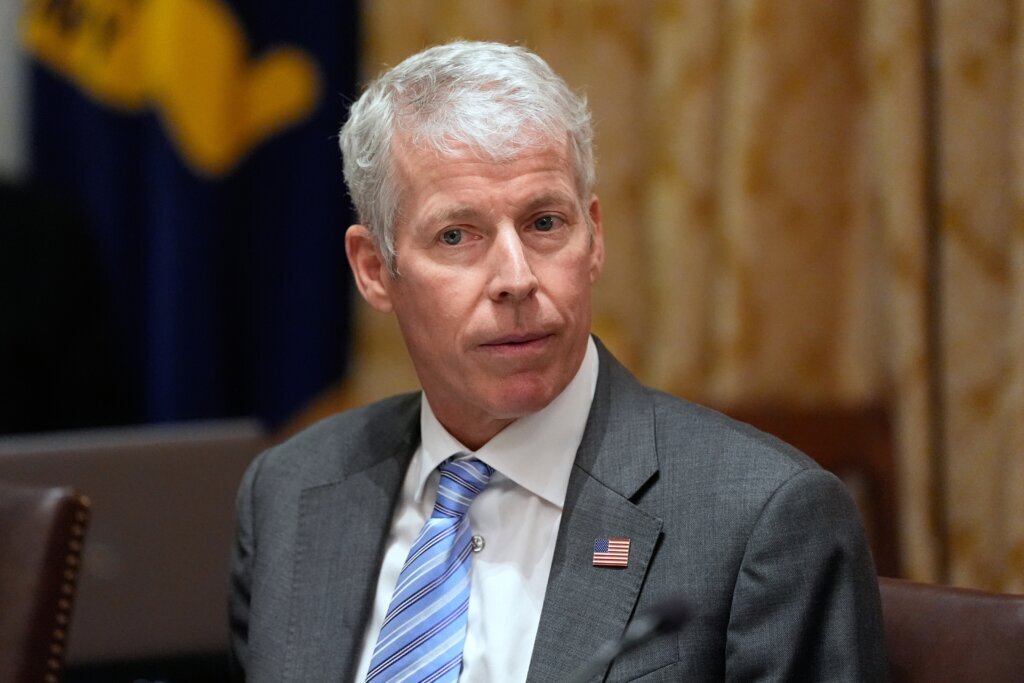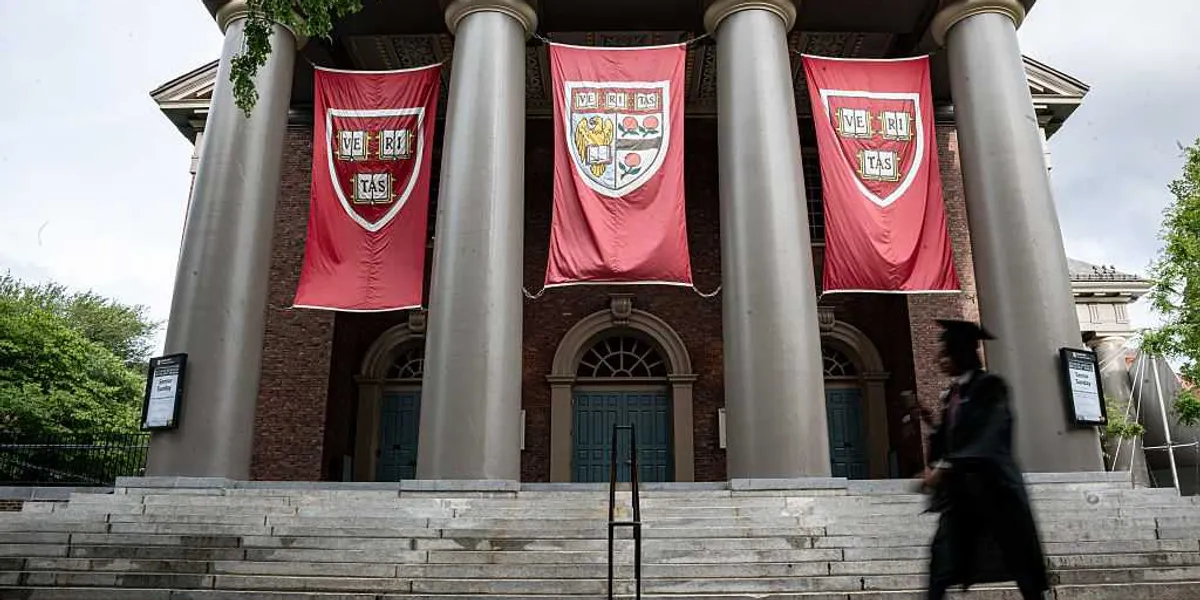
New framework classifies 70 percent of US adults as obese
New framework classifies 70 percent of US adults as obese
638 articles found

New framework classifies 70 percent of US adults as obese
Tomonobu Itagaki, the renowned creator of Dead or Alive and Ninja Gaiden, passed away on October 16, 2025. His final message, posted on Facebook, reflects on his life as filled with battles and pride in his convictions despite causing trouble. He expressed sorrow for not delivering new work to fans and noted he has no regrets. Katsuhiro Harada, Tekken director and longtime rival, shared his feelings on Twitter. The cause of Itagaki's passing remains unknown.

In response to pledge, company has claimed in a statement that its policies ‘prohibit discrimination of any kind’
US President Donald Trump said Thursday that he will meet Russian President Vladimir Putin at the Budapest Summit in Hungary to discuss ending the war in Ukraine. Trump announced the plan on Truth Social, saying the meeting will aim to “see if we can bring this ‘inglorious’ War, between Russia and Ukraine, to an end.” […]
We'll see breezy conditions Friday with a northwesterly flow ushering in a few mountain snow and valley rain showers. Highs will be around average in the mid 50s.

Cardi B is poppin' it heavy on those who wanna see her downfall.

Međunarodna federecija fudbalskih asocijacija (FIFA) obavestila je javnost da je već prodato preko milion karata za predstojeće Svetsko prvenstvo koje se 2026.

Morgan Stanley raises United Airlines stock price target to $140 on EPS growth outlook

WASHINGTON (AP) — The Department of Energy said Thursday it has finalized a $1.6 billion loan guarantee to a subsidiary…
Independent Bank GAAP EPS of $0.69 beats by $0.84, revenue of $243.74M misses by $1.03M
Interactive Brokers Q3 results top estimates as trading volumes jump

Litewater claims the luxe beverage is "the ultimate form of biohacking.” Some doctors aren't convinced.
As the federal government pushes more disaster recovery responsibilities onto states, they are “sitting ducks” for contractors.Read the story on VTDigger here: How Vermont lost track of millions in FEMA flood recovery funds.
The Rawalpindi Traffic Police on Thursday issued a comprehensive traffic management plan for the upcoming Pakistan-South Africa cricket matches to ensure the smooth flow of traffic and convenience of the public. The two teams are scheduled to play the second Test at the Rawalpindi Cricket Stadium from October 20 to 24. According to City Traffic […]
“The Brady Chapel has been a part of the Pocatello community for over a century,” said Jim Anglesey, City of Pocatello Long-Range Planner and staff liaison to the HPC. “The open house provides an opportunity for the community to come and celebrate Pocatello’s history, learn more about the Chapel’s significance, and find out what current efforts are being undertaken to preserve this historic edifice.”

Ms. Machado’s efforts to reclaim a stolen election by any available means, including military intervention, has long galvanized her supporters. Her opponents say these hard-line policies have a political cost.

By MARGERY A. BECK, Associated Press OMAHA, Neb. (AP) — As states consider redrawing their congressional district lines to favor one political party, some politicians warn that attempts to gerrymander can devolve into “dummymandering,” when partisan goals end up helping the opposing party in neighboring districts. Pushed initially by President Donald Trump, state legislators across the country are discussing and at times agreeing to change boundaries in hopes of helping members of their party and ultimately deciding control of the U.S. House in 2026. Some are finding it’s not as easy as it seems. “Trying to win more seats comes with a risk, because in order to win more seats, they have to draw districts more competitively,” said University of Texas at Dallas political science professor Thomas L. Brunell, who helped coin the term dummymander. Republicans could try redistricting Nebraska U.S. House districts are typically redrawn once a decade, immediately after a census, but some states allow it to happen more frequently. And the U.S. Supreme Court has said there is no federal curb on political gerrymandering, in which districts are intentionally drawn to favor one party. Nebraska is among a number of states being targeted for mid-decade redrawing of congressional district lines, with the head of the National Republican Redistricting Trust last week naming Nebraska among its top candidates for change. Republican Gov. Jim Pillen said he supports the idea. The focus would be the Omaha-based 2nd Congressional District, a “blue dot” with Nebraska’s highest concentration of Democratic voters in a state otherwise dominated by Republicans. Republicans hold all three of Nebraska’s U.S. House seats, including the 2nd District, but the Omaha seat is considered vulnerable. Incumbent Rep. Don Bacon eked out wins in the last two elections and won’t seek reelection in 2026, bolstering Democratic hopes. Gerrymandering in a state where Republicans outnumber Democrats by a 2-1 ratio would seem simple, but state Sen. John Cavanaugh said it’s not. Cavanaugh, a Democrat who worked on Nebraska’s last redistricting effort following the 2020 U.S. Census and is now seeking the 2nd District seat, said Nebraska’s congressional districts already heavily favor Republicans following decades of GOP-led redistricting efforts. “They’ve gone to great lengths to make the 2nd District less competitive,” Cavanaugh said. Redistricting and the 2026 midterm elections This summer, Trump urged Republican-led Texas to reshape districts so the GOP could win more seats in next year’s elections, jump-starting an offseason redistricting battle. The Republican Party typically loses congressional seats in midterm elections and the president is trying to buck that trend. Democrats need to gain just three seats to take control of the House. In August, Texas lawmakers redrew the state’s congressional districts to give Republicans a shot at winning five more seats. Democratic-led California responded with a redistricting plan intended to help Democrats win more seats, though it still needs voter approval. Leaders in other Democratic-leaning states, such as Maryland, New York and Illinois, have said they’re considering their own mid-decade redistricting plans. Last month, Republican-led Missouri adopted revised districts aimed at helping the GOP win another seat. North Carolina Republican legislative leaders also have announced plans to vote next week on redrawing the state’s House district map. Redistricting remains under consideration in several other states, including Indiana and Kansas, where Republican lawmakers are gathering petition signatures from colleagues in an effort to call a special session for congressional redistricting. The effort could backfire Some Republicans remain hesitant, partially because of concerns that mid-decade redistricting could backfire. To make Democratic-leaning districts more favorable to Republicans, map drawers would have to shift some Democratic areas into districts currently held by Republicans, making them more vulnerable. In South Carolina, Republican leaders worry that redrawing its seven U.S. House districts could be dangerous in a state where the GOP hovers at roughly 55% in competitive elections. Republicans hold all seven seats but lost one for a term in 2018. Kansas had already attempted to make the state’s four districts an all-GOP congressional delegation when it redrew the lines in 2022 to weaken the Democratic stronghold on the Kansas City-area. But Democratic incumbent Rep. Sharice Davids still won easily in 2022 and 2024. Trump’s push to redraw the maps comes as his administration’s policies face skepticism among many voters, according to polling by The Associated Press-NORC Center for Public Affairs Research. Moon Duchin, a computer and data science professor at the University of Chicago and redistricting expert, said creating reliably partisan congressional maps in a large state like Texas is easier because the state has 38 districts, offering plenty of options to tinker. It’s tougher in states like Nebraska or Kansas, she said. “You have fewer lines; you’re not going to be able to put them as far out of reach without creating opportunities elsewhere,” Duchin said. “And so, yes, you have to do it really carefully because it can backfire.” Even in Texas, Republicans saw the effects of dummymandering after they aggressively redrew political lines in the 2010s that helped pad the GOP’s House majority. That lasted until 2018, when a backlash against Trump in his first term led Democrats to flip two seats that Republicans had thought safe. “That’s the thing about gerrymandering — people are still going to vote, and you have to make guesses about future voting behavior,” Duchin said. Nebraska has other challenges After initial reluctance, Republicans in states including Texas and Missouri came around to support redistricting. That could happen in Nebraska, too, but some key Republican lawmakers remain opposed. Republican state Sen. Merv Riepe said he’s not inclined to support such a measure, leaving Republicans with too few votes to overcome a filibuster. That’s in line with Republicans’ failure last year to pass a bill that would have made Nebraska the 49th state to award its Electoral College votes on a winner-take-all basis. Currently, only Nebraska and Maine allow presidential electoral votes to be split by congressional district. Nebraska’s 2nd District’s vote has gone to Democrats three times in the last two decades — to Barack Obama in 2008, Joe Biden in 2020 and Kamala Harris in 2024. Associated Press writers David A. Lieb in Jefferson City, Missouri; John Hanna in Topeka, Kansas; Jeffrey Collins in Columbia, South Carolina; and Gary D. Robertson in Raleigh, North Carolina contributed.

Harvard has stated that it had an “extraordinarily challenging” fiscal year amid its ongoing feud with the Trump administration. President Donald Trump withheld over $2 million in federal research funding after he accused Harvard of “repeatedly” failing to confront anti-Semitic harassment on its campuses, arguing that the university was violating federal civil rights law. 'Even by the standards of our centuries-long history, fiscal year 2025 was extraordinarily challenging, with political and economic disruption affecting many sectors, including higher education.' Harvard responded to the funding freeze by suing the administration. While most of those awards have been reinstated, according to Harvard, President Donald Trump’s actions against the university appear to have made an impact. “The reinstatements of those grants do not erase the disruption the terminations sparked, nor do they negate the uncertainty ahead. That means we can’t simply return to ‘business as usual,’” Harvard chief financial officer Ritu Kalra told Bloomberg. A financial report released Thursday by the Ivy League school showed a $113 million deficit for fiscal year 2025, which ended on September 30. This marks Harvard’s first operating loss since 2020 and its largest deficit since 2011. In contrast, for fiscal year 2024, Harvard reported a $45 million gain. Harvard’s financial difficulties prompted it to make “difficult but necessary choices,” according to Alan Garber, the university’s president. It reportedly implemented a hiring freeze, initiated layoffs, scaled back projects, and withheld salary increases from exempt employees. RELATED: Harvard’s hypocrisy hits the courtroom Photo by Chip Somodevilla/Getty Images “Even by the standards of our centuries-long history, fiscal year 2025 was extraordinarily challenging, with political and economic disruption affecting many sectors, including higher education,” Garber wrote. He also blamed President Donald Trump’s termination of federal research funding, noting that a federal judge found the move to be unlawful. The administration reportedly has plans to appeal the judge’s decision. RELATED: Why Trump’s war with Harvard hits closer to home than you think Photo by JOSEPH PREZIOSO/AFP via Getty Images “We closed [the fiscal year] confronting the abrupt termination of nearly all of Harvard’s federal research grants, facing potential constraints on the exchange of international scholars, and considering how we will absorb the enactment of a substantial increase to the federal tax on endowment income, scheduled to take effect in fiscal 2027,” the report read. Despite its reported challenges, Harvard recorded the largest current-use gifts in its history, totaling $629 million — a 19% increase over the previous fiscal year. However, the university's endowment gifts, which are more restricted in their use, have declined over the last two years. In fiscal year 2023, Harvard collected $561 million in endowment gifts, while the amounts dropped to $368 million in 2024 and $364 million in 2025. Like Blaze News? Bypass the censors, sign up for our newsletters, and get stories like this direct to your inbox. Sign up here!

A network of former intelligence and security officers says democratic decline is accelerating under Trump’s rule